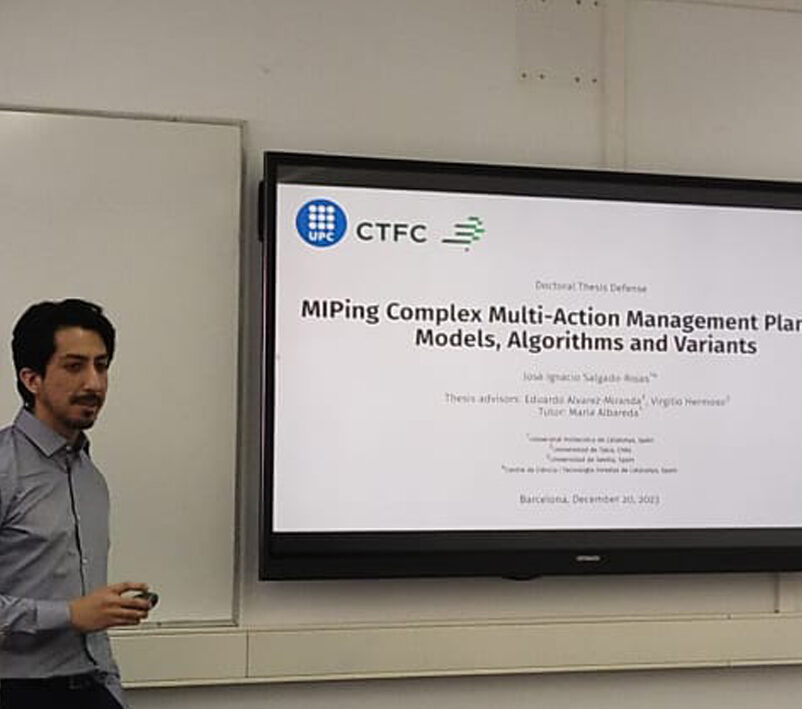The applications developed in this thesis allow to improve conservation planning in a practical way
José Salgado, PhD student of the Environmental Decision-Making group of the Landscape Dynamics and Biodiversity program of the Forest Science and Technology Centre of Catalonia (CTFC), defended the thesis “MIPing Complex Multi-Action Management Planning”, supervised by Virgilio Hermoso, on Wednesday, December 20 at the Polytechnic University of Catalonia, Barcelona.
Biodiversity loss on a global scale, as shown in the latest WWF Living Planet Index Report 2022, habitat degradation, and climate change are unprecedented environmental challenges. Addressing these global problems requires a holistic and multifaceted approach. With this in mind, Salgado has developed methodologies capable of handling this complexity and offering effective solutions for conservation planning.
Salgado has focused his research on the development and use of mathematical methodologies, such as Mixed Integer Programming, for decision-making in biodiversity conservation planning. Thus, the applications developed allow planning the management of multiple actions, innovative approaches, and practical tools to improve conservation strategies.
One of the applications developed is PrioriActions, a new tool that allows designing effective conservation management strategies, indicating not only where to locate conservation actions, but also which actions should be carried out in each location. The new tool has been created with the idea of democratizing the design of biodiversity conservation strategies through an easy-to-use application developed with the R programming language. PrioriActions represents a qualitative advance over current biodiversity management planning, as it allows management recommendations to be refined to a level not available until now.
The thesis provides novel insights and methodologies, practical tools, and computational advances that improve decision-making in complex conservation planning scenarios.
 “The advances outlined in this thesis have the potential to facilitate more informed decision-making in planning conservation management strategies. Through the application of mathematical optimization, we seek to foster interaction between two scientific disciplines that often advance independently,” explains Salgado.
“The advances outlined in this thesis have the potential to facilitate more informed decision-making in planning conservation management strategies. Through the application of mathematical optimization, we seek to foster interaction between two scientific disciplines that often advance independently,” explains Salgado.
Last modified: 20 December 2023










